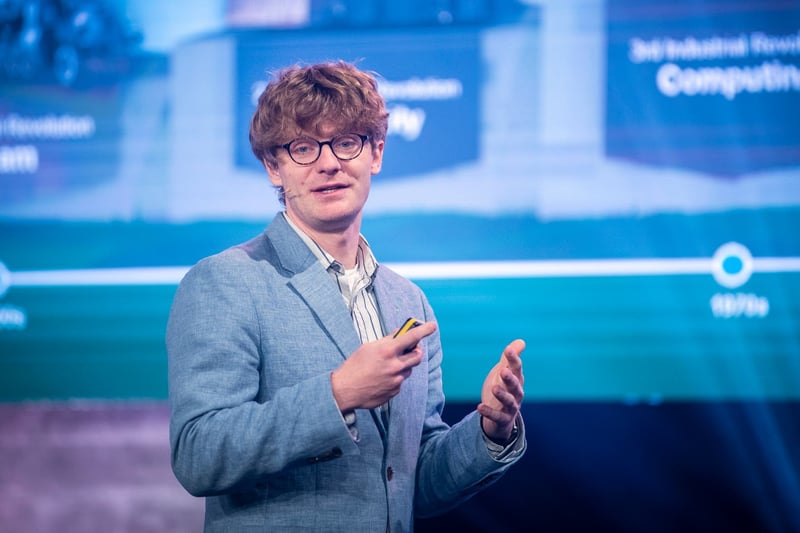Apart from him, no other German has ventured so far into Silicon Valley: Richard Socher is considered a “German prodigy” and a beacon of hope for the local AI industry. The former chief scientist at Salesforce developed the AI-based search engine You.com in 2020, with which he now wants to declare war on Google.
Richard Socher appreciates the peace and quiet in his office in the middle of California’s Bay Area, half an hour away from Silicon Valley with its sterile start-up factories and office complexes and dazzling and world-famous CEOs. Socher is not one of them: He has a doctorate in computer science and seems very down-to-earth; his work attire is a T-shirt and jeans. Despite being a busy person, he doesn’t even look at his phone during the Zoom interview with Forbes. When Socher dedicates himself to something, he does so wholeheartedly.
In 2014, he founded Metamind, an artificial intelligence start-up: “I wanted AI to have a place not only in research, but also in people’s lives,” says Socher. I
n 2016, computer software giant Salesforce bought the company and appointed him chief scientist. At the time, Socher was just 33 years old. “Especially in my twenties, all I really did was work,” he says.Today he no longer works at Salesforce, instead he has built something of his own again: He wants to revolutionize web searches with his AI-based search engine “You.com”. “Our goal is to develop the best chat search engine in the world,” explains Socher proudly. You.com works with Chatbot, an AI that extracts the most current data from the Internet in response to a human request and evaluates the most likely answer.
According to Forbes US, You.com has now reached well over a million actively searching users. You.com received $20 million in seed capital from Salesforce founder Mark Benioff; a manageable sum compared to the ten billion US dollars that Alphabet invested in its AI start-up Anthropic. The tech giant also launched a chatbot-based internet search with the company founded in 2021 — prominent competition for Socher. But he doesn’t shy away and attacks Alphabet anyway, and he is confident: «Consumers have become more critical themselves and no longer want to support Google’s business model.»He doesn’t share the typical Californian desire for power. Socher says he wants to learn from the mistakes of past companies and not allow himself to be put under pressure by investors. But Socher also has to make money if he wants to change the world; He doesn’t rule out an advertising model: A You.com premium subscription will soon allow users to surf ad-free. This should finally make the search engine competitive and bring in black numbers.
In addition, You.com users also have access to various features such as an integrated writing program that produces texts of amazing quality and is able to write coherent essays. Socher is aware that many people fear or distrust such capable AI. But he reassures: “At the time of the industrial revolution, people were also afraid of being replaced by machines. Now you’re happy that you don’t have to work in the fields anymore.”Socher doesn’t work in the fields, but he still works hard. He even makes time at night for interviews and press events with reporters from Europe. Nowadays he also tries to have dinner with his wife and devote himself to his greatest hobby, paragliding. Socher: “You get completely new impressions of the world, and through photography I can share these perspectives on the world with other people.”
He’s not yet an AI missionary like Elon Musk, but when Socher speaks, the tech world listens. His published research papers are among the most cited works in the tech industry. This year he appeared as a speaker at the OMR Festival and lectured to tens of thousands of people. He addresses serious problems such as climate change or poverty with alternative solutions.Socher’s life has taken him to three continents: Born in Dresden in 1983 as the son of a scientist and an engineer, he spent most of his youth in Ethiopia. After studying computer science in Saarbrücken, he moved to Stanford, the academic suburb of Silicon Valley, to do his doctorate. There he left the field at the top of his class and got a teaching position at Princeton University. But Socher swapped the Ivy League for Silicon Valley and founded Metamind, an artificial intelligence start-up, in 2014: “I wanted AI to have a place not only in research, but also in people’s lives.”

